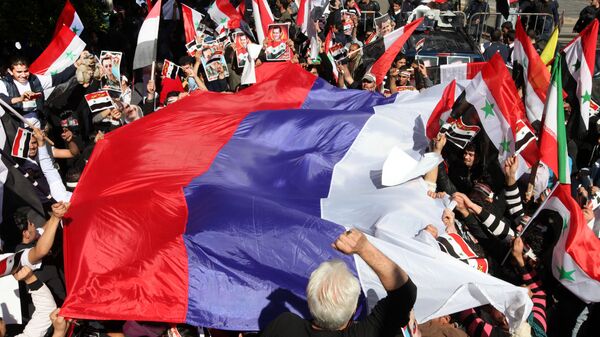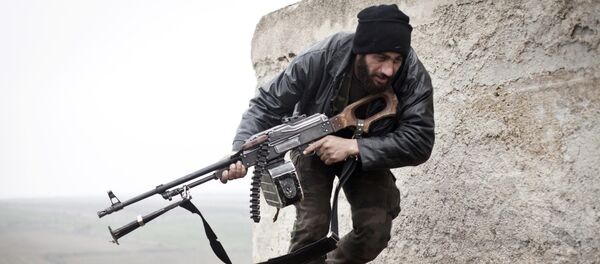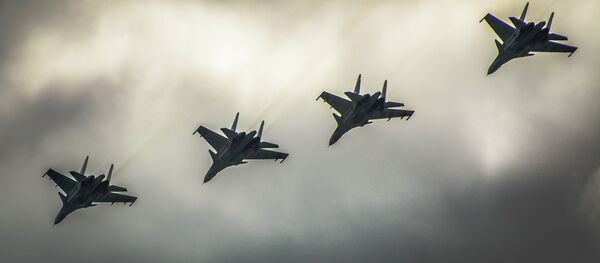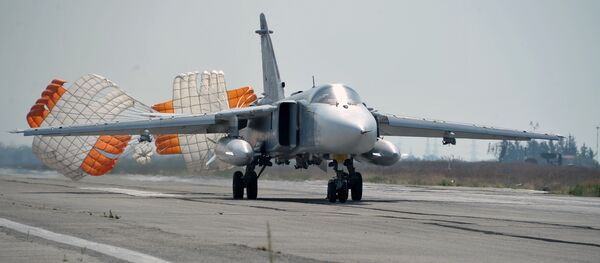Gregory cited polling by the Levada Center, an independent sociological research institution which surveyed Russians from October 2-5, at the onset of the Russian air campaign in Syria. Gregory 'found' that "whereas some 46% express support for sending Russian troops, 33% are against and 20% have not made up their minds," vaguely adding, without clarifying any figures, that "respondents favor bombing ISIS, whether by Russian or French planes."
This led the analyst to put a question mark over "whether Putin will be able to convince the Russian people to bear the burden of yet another foreign adventure. His propaganda succeeded for Ukraine, but is less likely to work in faraway Syria."
Leaving aside questions about what proof he actually has to offer about Russia's "foreign adventure" in Ukraine, the more important point here is Gregory's 'interpretation' of the Levada survey on Syria.
The very first question in the Levada poll actually found that a whopping 72% have an 'entirely positive' or 'mostly positive' assessment of the Russian Air Force's campaign of airstrikes, with only 14% holding a 'mostly negative' or 'entirely negative' assessment, and another 14% finding it 'difficult to say'.
With the Russian air campaign now entering its second month, and Russian ground troops nowhere in sight, Levada found, in polling conducted last week, that the numbers of Russians who believe the Syrian campaign could turn into 'a new Afghanistan' is steadily dropping, with only 35% now believing that it is possible or likely, and a full 50% confident that it will not happen.
Putin, by Gregory's own admission, has repeatedly said that Russia will not introduce ground troops, with analysts suggesting that the Russian leader remembers the bloody lessons from the 80s war in Afghanistan, as well as Washington's more recent adventures in Afghanistan and Iraq.
As Russian geopolitical analyst Gevorg Mirzayan explained a few days after the start of the air campaign, Russia's military intervention in Syria is about "destroying its future enemies, with the help of Syrian, Iraqi and Iranian hands, nations for whom the problems which could face Russia tomorrow are already being faced today. They are the ones who bear the main financial and human losses of this war, their soldiers are the ones fighting on the ground and conducting real offensive operations. All they need now from Russia is technical assistance, intelligence and airstrikes. And all this Moscow has provided."
With these facts in mind, perhaps next time the Russia-watchers over at Forbes should be more careful before putting words in Russians' mouths.





